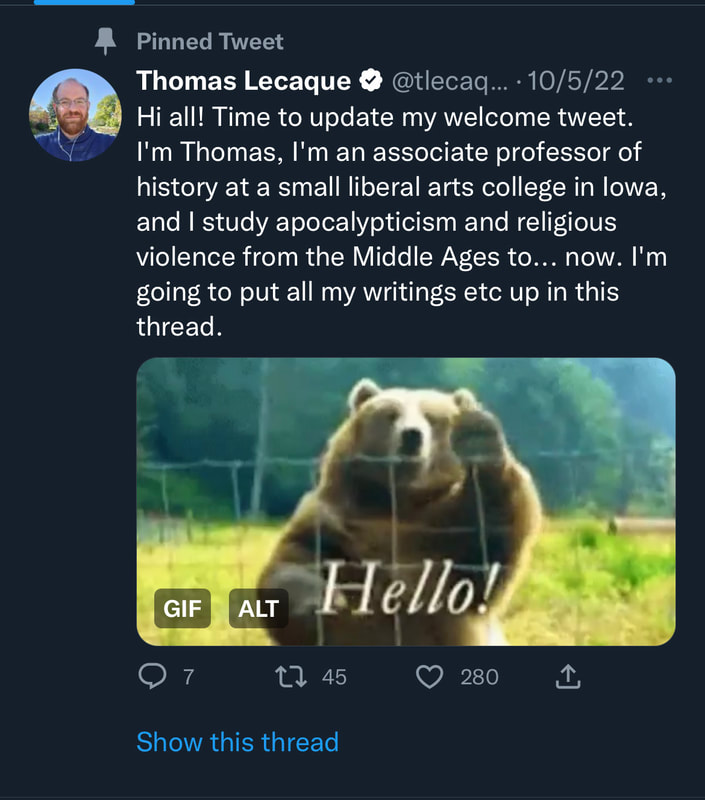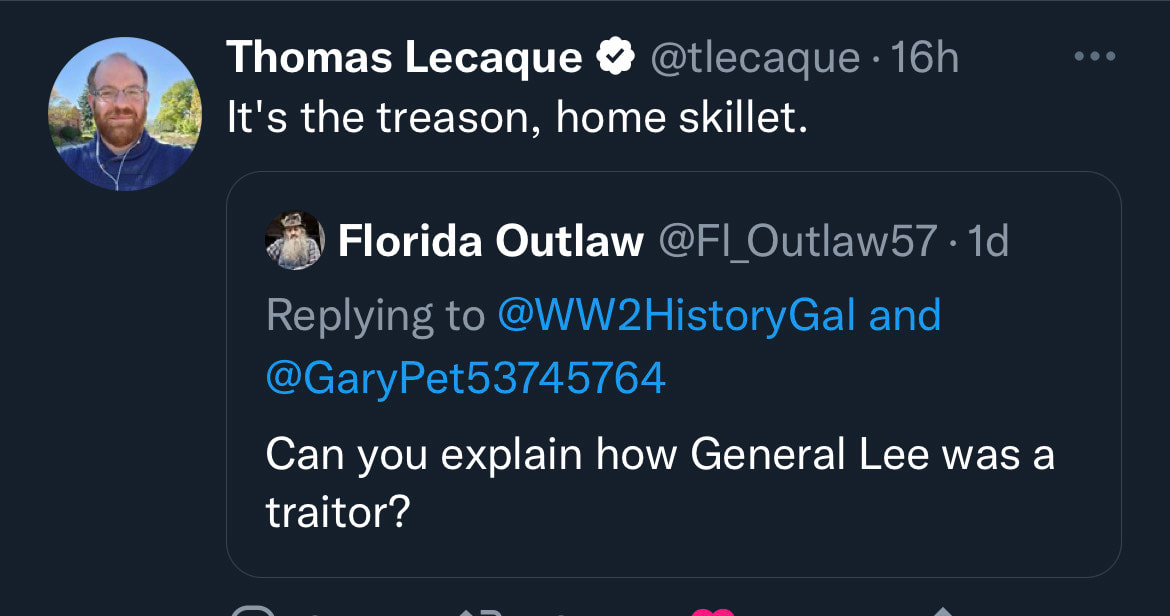|
If you are a new grad student you may have been told to "have an academic twitter" or that twitter is important for your career. That may be the extent of advice you were given. This post is some twitter basics. I am by no means a twitter influencer, but I did talk with some folks who are. These are some general tips as well as how I personally use twitter. As with all things, use your best judgment and remember that less is typically more when it comes to the personal information you publish online. Getting Started
Engaging on TwitterFor this section I enlisted the help of Dr. Thomas Lecaque, a Historian at Grand View University. Dr. Lecaque's historical hot takes and political commentary has earned him twitter fame (and the elusive blue check). 1. Check out his "Pinned Tweet" (below)
From Dr. Lecaque: "Twitter is a tool, and it can be helpful---it is a networking opportunity, one that has provided me with contacts, CFPs, and venues for publication, both public facing and academic. And these are all positive things. But Twitter is also social media, and it as such has all of the risks and problems and genuine threats to watch out for. In the current academic climate, where social media is monitored by schools and political groups, you have to be careful. And I say with full knowledge of how aggressively hypocritical it is for me to say so---my Twitter feed is aggressively political and impolite, and has been since grad school. But social media replicates the power dynamics that are a hellscape in reality, too. I'm a cisgender, heterosexual white man, with tenure; social media enables me to extend my own reach. So use it! Use it to circumvent the traditional power structures to the best of your abilities! But be careful. This is especially true when you have a larger following. It amplifies your message and brings in ever increasing opportunities for publications, podcasts, other media---but it also attracts scrutiny, critique, and trolling. If you end up on the radar of the largest far right platforms, your university will not protect you, and the threats go from online harassment to real life harassment very quickly, ESPECIALLY if you are not a white man." As you can see above, Dr. Lecaque has the job security and the following to engage with trolls with humor (and sometimes swearing). He is able to weigh in on trending topics and political arguments that junior scholars may not have the same freedom to engage with.
By comparison, my tweets are more formal. I have merged my personal and professional twitter accounts and try to refrain from sharing too many specifics about my personal life. I do make my political views clear but I made that decision very carefully. If you've seen my CV, it becomes very clear that I study issues including abortion, abolition, and trans rights. These topics of study do limit the number and type of organizations interested in working with me (particularly colleges and universities with certain religious ties). I prefer to be upfront about my political views and address potential biases clearly and transparently. The degree to which you share your personal life and views online deserve careful consideration.
0 Comments
|
AuthorAttended grad school 2015-2022, earned my MS and PhD in sociology. Currently working as a post doctoral researcher. ArchivesCategories |


 RSS Feed
RSS Feed
